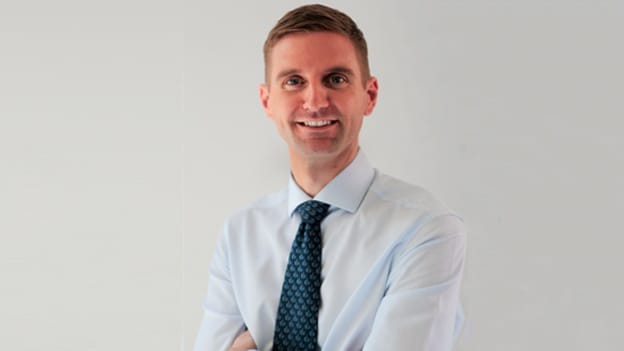Bert Vercamer on the growing importance of global competency

1) Could you tell us about your current role? How and when did you get interested in training and more specifically in intercultural communication, competency and relations?
I serve as Chief Program Innovation Officer at AFS Intercultural Programs, and as General Manager of its subsidiary, Sentio Global Education Network. AFS Intercultural Programs is a non-profit international education organization that prepares active global citizens to take action in their communities and around the world. AFS study abroad programs, volunteerism and social impact programs work in 94 countries includes structured intercultural learning journeys that lead to global competence.
My team supports a range of AFS programs to ensure every participant has an amazing transformative intercultural experience. We develop new program formats, innovate and leverage technology to ensure that all AFS participants develop global competence.
My pathway to AFS started 16 years ago. I completed a Masters in Economics, and while my peers went on to the banks, accounting firms and consultant companies, I took a job as a program coordinator in a non-profit. AFS was my first job, and I’ve held many positions in the organization since then. My time at AFS showcases my belief that a passion for the job that fits you is much more important than choosing a job just for prestige or the high salary. Through AFS, I got to know the science behind what happens when two people with a different cultural mindset meet. I became intrigued about this emerging academic field of intercultural relations, obtained a Masters in Intercultural Relations, and work for an organization that supports people with intentional educational programs to grow their global competence.
2) How would you define intercultural competency and why is it necessary for today’s world?
Intercultural competence helps us initiate and develop relationships with culturally different others and communicate and interact effectively and appropriately in different cultural contexts, all without judgment. For the somewhat broader definition of global competence, AFS really likes the one from the OECD—”the capacity to analyze global and intercultural issues critically and from multiple perspectives”.
Intercultural/global competence is a critical foundation to becoming an active global citizen making a social impact, be it in your community or at work. We include volunteerism and social impact opportunities into our educational programs, abroad or at home. Putting your intercultural skills and knowledge to work will start changing things, big and small.
There are also plenty of studies that show the economic impact of intercultural competence. A British Council Report “Culture at Work” lists real business value for intercultural skills: team efficiency and workplace harmony; developing relationships and building trust with new clients overseas; positive impact on brand and corporate reputation and being able to work with diverse colleagues.
3) How do you think intercultural competencies are best enabled? There are a number of online courses today. What is AFS/Sentio’s approach to teaching these skills?
Research shows that an immersive experience with cultural others helps build, at best, some minimal level of intercultural awareness, and at worst confirms cultural stereotypes. People mistake knowing the visual layer of a culture (language, food, architecture) for its deeper-lying values and norms.
True global competence can only be achieved through evidence-based educational programs to effectively tackle stereotypes and help you best understand your own cultural identity as well as the others. AFS educational programs are based on three research-based foundations. First, our educational goals ensure self-awareness, awareness of the cultural other, understanding your emotions and bridging cultural gaps while adapting your behavior accordingly. Secondly, we follow the experiential learning cycle which centers on your past and current experience and allows you to reflect on it and integrate these newly gained insights into your real-world experiences. Finally, skilled cultural mentors facilitate your whole experience. Especially that last point follows the latest research on intercultural skills development.
4) You’ve had a presence in India. What are you observing in terms of skill needs in this part of the world? What are some areas of improvement here as compared to the west?
Our AFS India office is based in Delhi, and offers a few programs, including a U.S. State Department program that provides scholarships for young adults from both countries to travel and share their culture with host families.
I have found that in India there is a large focus on technical skills: engineer, supply chain manager, IT, etc. I have done quite some training with executives from BP, Pfizer, and Merck before they travel to another country or region. They are generally highly regarded in their area of technical expertise in their home country. But when they arrive in the new destination, they aren’t aware of the intricacies of how culture is influencing the day-to-day contact. What is perceived as ‘good’ and ‘professional’ in their home country can easily be perceived as the opposite in the new country/culture.
To give you one example, my home culture in Belgium sees direct communication as good, and we are comfortable sharing opposing views in a meeting and working out our differences in public. That is – generally speaking – very different in an Indian context, where one values hierarchy, appreciates context to a decision and prefers to seek harmony of the immediate group, rather than working through conflict. The behavior to reach consensus is very different in these situations. In Belgium, it’s common to convene a quick meeting to discuss differences and talk through the issues. In India, there are more one-on-one conversations in the background, checking what the boss would want, and in meetings, a lot of context is shared to reach a conclusion shared by many. One approach is not better than the other, and they both work within their culture. True intercultural competence lies in understanding that these differences of communication are culturally learned – we aren’t born with them – and can be bridged by learning about the other’s cultural way of behaving.
5) Could you tell us about your work with corporates that partner with organizations such as yours?
There are several ways that for-profit corporations and civil society organizations such as AFS collaborate. Let me focus on three here:
AFS offers international internships in many destinations and many fields, with educational global competence program included in each of them. This way we can prove that people come back with higher intercultural skills and abilities. Further, AFS takes care of all logistics, visa, and other arrangements. We can develop customized international internships with global competence for corporations.
AFS also provides global competence programs for employees who never leave the country. This training can be especially helpful to diverse teams, employees who must deal with international clients or companies who are welcoming colleagues from different parts of the world or other regions in India.
Finally, many corporations see the benefit of liaising with a global non-profit, in existence for 70 years, for example, to organize short-term intercultural camps with a link to the Sustainable Development Goals, or to further the international education of individuals who otherwise would not have the opportunity. We’d love to partner with Indian corporations on any of our programs or international and regional global competence conferences.
6) What are learning or training trends you most excited about in the future?
I see a strong future in combining in-person learning with online learning. Leveraging technology allows the inclusion of learning methods that weren’t possible before, such as forums with global cohorts. In-person programs are often too robust to be scaled up quickly, which is why their reach is limited. With a proper blended learning program, we create a high touch, high tech learning environment. The quality of the time spent online should not be a concern if the right elements of a training program are addressed online.
While there is a substantial initial cost in setting up the online environment, they are much more affordable than fully in-person trainings. Finally, differently abled people are sometimes left out of in-person programs, which goes against the idea of accepting diversity on all levels. The right Learning Management System makes blended learning programs more accessible, and learners can also access content at their own pace and can go back anytime they want, accommodating each learner’s specific needs.









